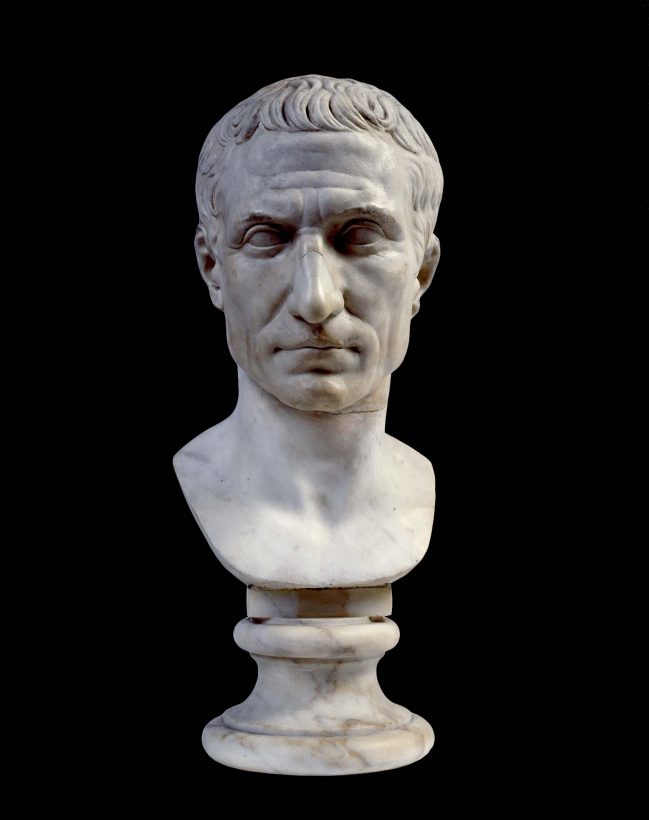Giulio Cesare: Il Dittatore Democratico
I picked up this book by chance while browsing around in a local library.
The edition I ended up taking had that famous bust of Caesar that now is a
popular souvenir at the Vatican Museum.

I always wanted to read a monograph about the most important (?) man for the
Western Civilization.
(I mean, heck, the various European titles all meant
Caesar: Zar, Kaiser, Cesar; and they all emanate from this one Caesar).
Eventually, during the Empire, it even became a job description.
I’m looking at you Diocletian.
Much of this recognition however, lays within the subtle and widespread PR policies of his successor, which was undoubtedly the “master of Rome”.
The author, is a well known philologist and Italian classicist; so going in I
was expecting a somewhat “heavy” book, steeped in in sources and other literary
nitpicks.
Unexpectedly, except for some more intense passages, the book was
an easy read; and it does it’s best in trying to portrait Caesar as human,
disentangling him from the mythical status that History has forever given
him.
Most of his actions are more easily explained by the circumstances in which they arose (the pact with Pompey, striving to stay in power to avoid legal prosecution by his enemies, crossing the Rubicon in arms) rather than some brilliant and convoluted master plan in which he is always 10 steps ahead of his enemies.
It is mostly the story of an ambitious man, ambitious to a fault, that deftly
maneuvered in the twilight of the Republican institutions, by pleading,
threatening, scheming and politicking his way to the top of the world.
The
changes that his rise to power and inevitable fall are about to bring forth are
not intentional, but rather the continuation of a process that started well
before his birth and will need all the political acumen of his successor to
consolidate.
I quite liked this portrayal, which is mostly based on the “standard sources” for Caesar’s life (Suetonius, Plutarch, Appian, the same Caesar) but also it also links events and hypothesize intentions through Cicero’s correspondence. This is true especially for the last two years before the Ides (aka the years of the power grab), as the political scene in Rome became tenser.
This humanizing depiction in some way helped stunt some of the godly aura of the ancient statesman and has somewhat helped me from imagining him as something different than an ambitious and cunning man that almost made it.
The awe and fascination however, are here to stay.
Fun fact: my favourite etymology (of many) for his Cognomen comes from the Latin word Caedo which means “to hit / to cut / to kill”.
Book Details
- ISBN: 8842081566
- Published: 2006
- Pages: 520